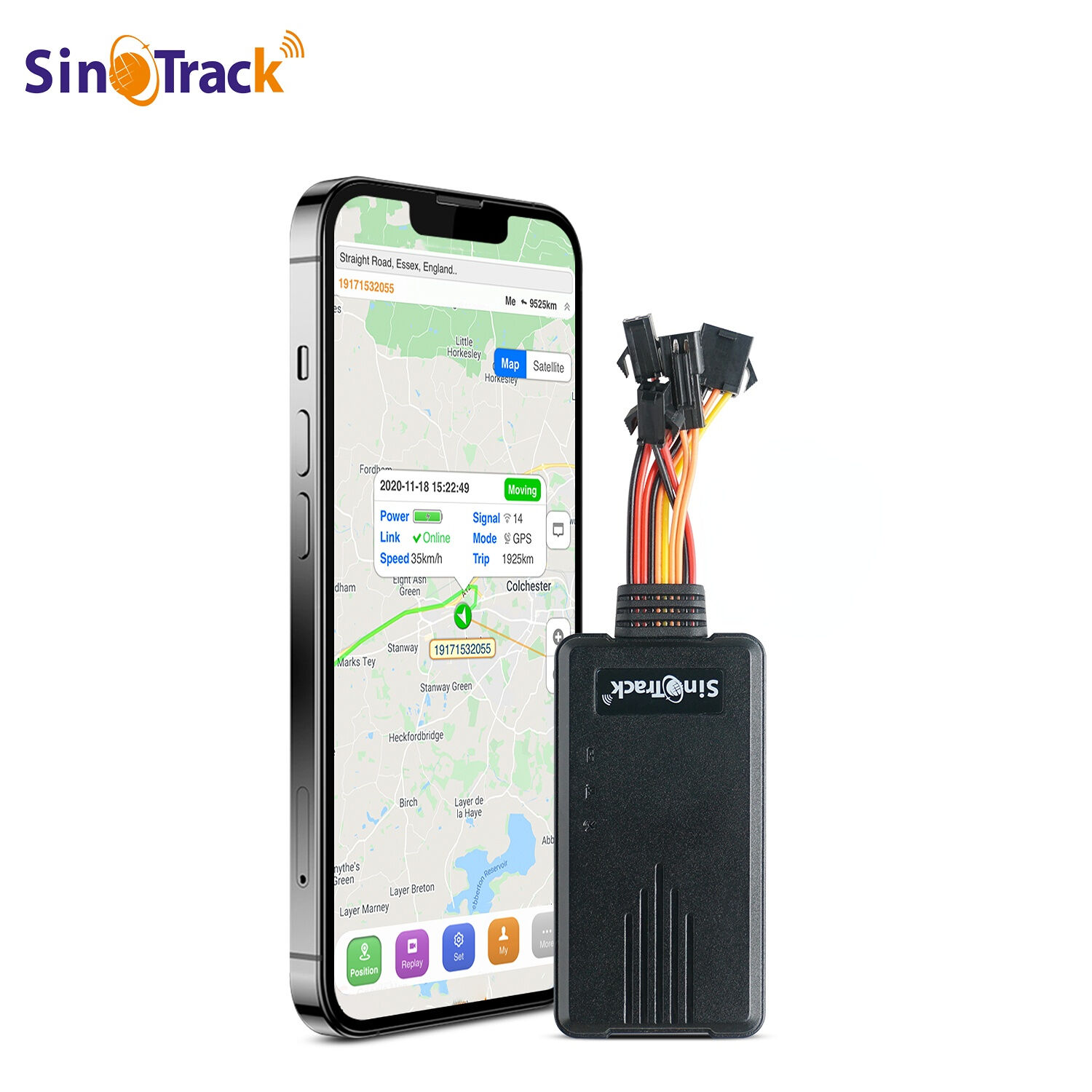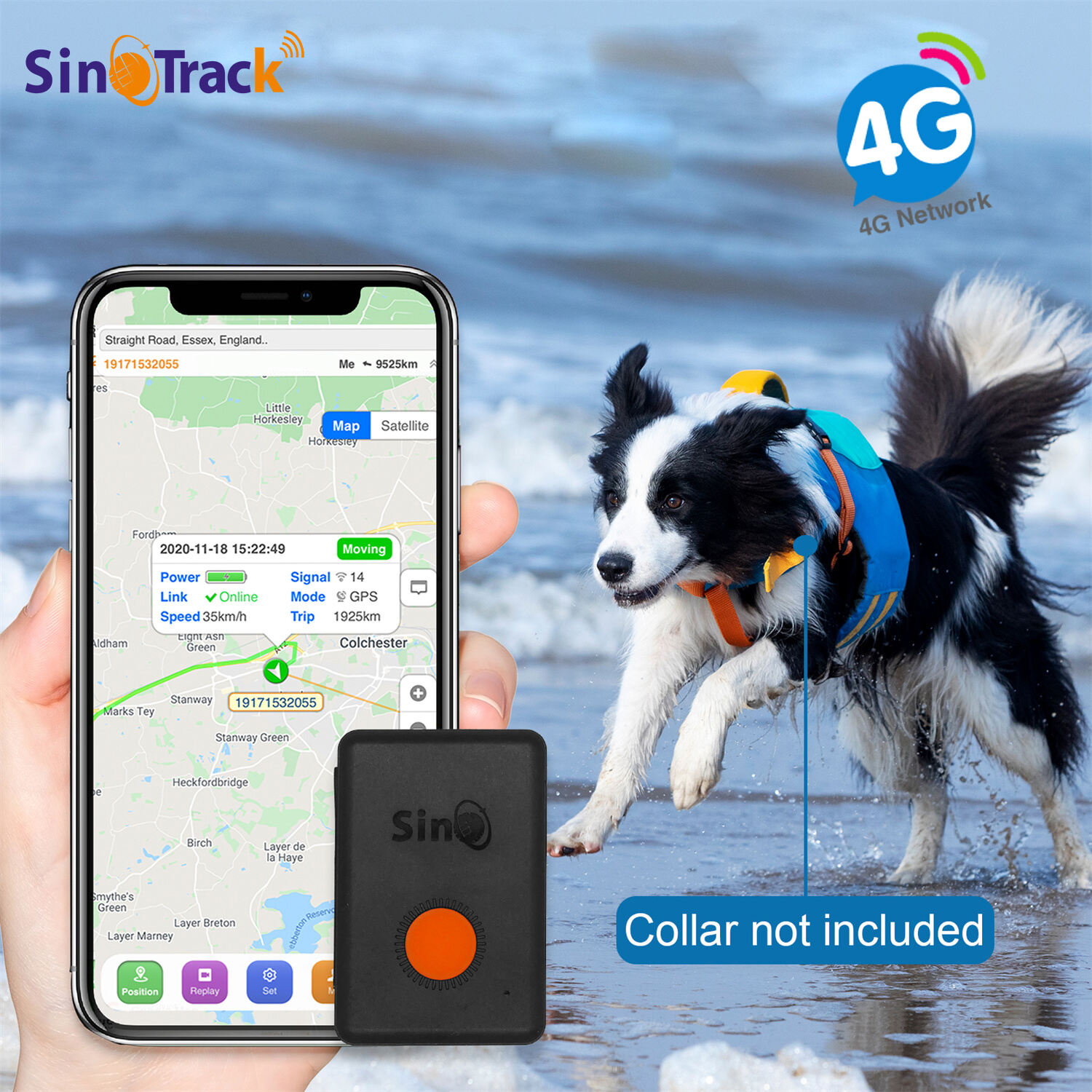Modern vehicle security and fleet management have evolved significantly with the advancement of GPS tracking technology. A reliable gps tracker serves as an essential tool for businesses, individuals, and fleet operators who need real-time location monitoring and theft protection. These sophisticated devices combine satellite positioning with cellular communication to provide accurate location data, making them indispensable for various applications ranging from personal vehicle security to large-scale commercial fleet management.

The current market offers numerous GPS tracking solutions, each designed to meet specific requirements and budgets. Understanding the key features, installation methods, and operational capabilities helps users make informed decisions when selecting the most suitable device. This comprehensive guide examines the leading GPS tracking devices available in 2025, highlighting their strengths, limitations, and ideal use cases to ensure optimal performance and value.
Essential Features of Modern GPS Tracking Devices
Real-Time Location Monitoring Capabilities
Contemporary GPS tracking devices provide instant location updates through advanced satellite networks and cellular data transmission. The most effective systems deliver position information with accuracy ranging from three to five meters under optimal conditions. High-quality devices incorporate multiple positioning technologies including GPS, GLONASS, and Galileo satellites to ensure consistent performance even in challenging environments such as urban canyons or dense forest areas.
Real-time tracking functionality extends beyond basic location reporting to include speed monitoring, direction of travel, and movement alerts. Professional-grade systems offer customizable update intervals, allowing users to balance battery life with tracking frequency based on specific operational requirements. Advanced models feature intelligent tracking modes that automatically adjust reporting intervals based on vehicle movement patterns and predefined settings.
Battery Life and Power Management
Power efficiency represents a critical factor in gps tracker performance, particularly for devices operating independently without direct vehicle power connections. Premium models incorporate sophisticated power management algorithms that optimize battery consumption while maintaining reliable tracking capabilities. Typical battery life ranges from several days to several months, depending on reporting frequency, environmental conditions, and device specifications.
Modern GPS tracking devices employ various power-saving technologies including sleep modes, motion-activated tracking, and adaptive reporting intervals. Some advanced units feature solar charging capabilities or extended battery packs for long-term deployment in remote locations. Understanding power requirements and available charging options ensures uninterrupted tracking performance across diverse operational scenarios.
Installation Methods and Compatibility
Hardwired Installation Systems
Professional hardwired installations provide the most reliable and tamper-resistant GPS tracking solutions for permanent vehicle applications. These systems connect directly to vehicle power supplies, ensuring continuous operation without battery maintenance concerns. Hardwired installations typically involve connections to ignition systems, enabling advanced features such as remote engine disable, starter interrupt, and comprehensive vehicle diagnostics.
Installation complexity varies significantly based on vehicle type and desired functionality. Professional installation services ensure proper integration with existing vehicle electronics while maintaining warranty coverage and optimal performance. Hardwired systems often include backup battery systems that continue providing location data even when main vehicle power is disconnected, enhancing security and recovery capabilities.
Portable and Magnetic Mount Options
Portable gps tracker devices offer flexibility and convenience for temporary tracking applications or situations requiring device mobility between multiple vehicles. Magnetic mounting systems provide secure attachment to metal surfaces while allowing quick installation and removal without permanent modifications. These solutions prove ideal for rental fleets, temporary assignments, or covert tracking applications.
Battery-powered portable units require regular charging or battery replacement but offer complete independence from vehicle electrical systems. Weatherproof enclosures protect devices from environmental elements, ensuring reliable operation in various climatic conditions. Compact designs facilitate discrete placement while maintaining strong cellular and GPS signal reception for accurate tracking performance.
Communication Technologies and Data Plans
Cellular Network Integration
Modern GPS tracking devices rely on cellular networks to transmit location data from the device to monitoring platforms and mobile applications. Network compatibility varies between devices, with some supporting multiple carriers and others locked to specific networks. Understanding network coverage areas and data plan requirements ensures consistent tracking performance across intended operational territories.
Advanced devices support 4G LTE networks for faster data transmission and improved reliability compared to older 2G or 3G systems. Network redundancy features automatically switch between available carriers to maintain connectivity in areas with varying signal strength. Some premium models incorporate satellite communication capabilities for tracking in remote areas without cellular coverage.
Data Plan Considerations and Costs
GPS tracking devices require active cellular data plans to transmit location information, with costs varying based on data usage, reporting frequency, and service provider. Monthly subscription fees typically range from fifteen to fifty dollars per device, depending on features and data allowances. Understanding data consumption patterns helps optimize plan selection and control operational expenses.
Some manufacturers offer integrated service plans bundled with device purchases, simplifying activation and ongoing management. Prepaid options provide cost control for seasonal or temporary tracking applications, while unlimited plans suit high-frequency reporting requirements. Evaluating total cost of ownership including device purchase price, installation costs, and ongoing service fees ensures accurate budget planning.
Advanced Monitoring Features and Alerts
Geofencing and Boundary Management
Geofencing technology allows users to define virtual boundaries and receive automatic notifications when tracked vehicles enter or exit designated areas. This feature proves invaluable for monitoring employee activities, ensuring vehicles remain within authorized territories, and detecting unauthorized usage. Advanced systems support multiple geofence shapes and sizes, from simple circular boundaries to complex polygonal areas matching specific routes or facilities.
Sophisticated geofencing systems integrate with business management software to automate various operational processes including timesheet management, customer arrival notifications, and service dispatch optimization. Custom alert settings allow fine-tuning notification frequency and delivery methods to prevent alert fatigue while maintaining essential monitoring capabilities. Some systems support time-based geofencing that applies different boundary rules based on work schedules or operational hours.
Speed Monitoring and Driving Behavior
Comprehensive speed monitoring capabilities help fleet managers maintain safety standards, reduce insurance costs, and ensure regulatory compliance. Advanced gps tracker systems record maximum speeds, average velocities, and duration of speed limit violations with detailed timestamps and location data. This information supports driver coaching programs and helps identify potentially dangerous driving patterns.
Modern devices incorporate accelerometer sensors that detect harsh acceleration, sudden braking, and sharp cornering events. This data contributes to comprehensive driver behavior scoring systems that help improve safety performance and reduce accident risks. Integration with driver identification systems ensures accurate attribution of driving events to specific operators in shared vehicle environments.
Industry-Specific Applications
Fleet Management Solutions
Commercial fleet operators utilize GPS tracking systems to optimize routing, reduce fuel consumption, and improve customer service delivery. Comprehensive fleet management platforms integrate tracking data with dispatch systems, maintenance scheduling, and performance analytics to maximize operational efficiency. Real-time visibility into vehicle locations enables dynamic route adjustments based on traffic conditions, emergency requests, or changing priorities.
Advanced fleet tracking solutions provide detailed reporting on vehicle utilization, idle time, and maintenance requirements. This data supports evidence-based decision making for fleet optimization, vehicle replacement planning, and operational cost reduction. Integration with fuel card systems and maintenance management software creates comprehensive operational dashboards for enhanced business intelligence.
Personal Vehicle Security
Individual vehicle owners increasingly rely on gps tracker systems for theft recovery, family safety monitoring, and insurance discounts. Discrete installation options provide security without alerting potential thieves to the presence of tracking devices. Emergency features including panic buttons and automatic crash detection enhance personal safety and enable rapid emergency response.
Family tracking applications allow parents to monitor teenage drivers, ensuring safe driving habits and providing peace of mind during vehicle usage. Historical tracking data helps verify vehicle usage patterns and supports insurance claims processing in case of theft or accidents. Some insurance companies offer premium discounts for vehicles equipped with approved GPS tracking systems due to improved recovery rates and reduced claim costs.
Selection Criteria and Best Practices
Evaluating Device Specifications
Selecting the optimal GPS tracking device requires careful evaluation of technical specifications, operational requirements, and budget constraints. Key performance indicators include location accuracy, update frequency, battery life, and environmental durability ratings. Professional applications typically require devices with IP67 or higher weatherproofing ratings to ensure reliable operation in harsh conditions.
Compatibility with existing systems and software platforms influences device selection, particularly for businesses with established fleet management or security systems. Open API availability enables custom integrations and data sharing with third-party applications. Scalability considerations ensure tracking systems can accommodate business growth without requiring complete platform changes.
Installation and Maintenance Requirements
Proper installation significantly impacts tracking device performance, reliability, and longevity. Professional installation services ensure optimal antenna placement, secure mounting, and appropriate power connections while maintaining vehicle warranties. Installation locations should provide strong cellular and GPS signal reception while protecting devices from theft, tampering, and environmental damage.
Regular maintenance schedules help ensure continued tracking performance and identify potential issues before they impact operations. Battery-powered devices require periodic charging or replacement, while hardwired systems may need occasional inspection of connections and mounting hardware. Software updates and firmware upgrades enhance device capabilities and address security vulnerabilities as they become available.
FAQ
How accurate are modern GPS tracking devices for vehicle monitoring
Modern GPS tracking devices typically provide location accuracy within three to five meters under normal operating conditions. Accuracy can be affected by factors such as satellite visibility, atmospheric conditions, and urban interference. Premium devices incorporating multiple satellite systems and advanced processing algorithms achieve the highest accuracy levels for professional applications.
What are the ongoing costs associated with GPS tracking devices
Ongoing costs include monthly cellular data service fees ranging from fifteen to fifty dollars per device, depending on features and data usage. Additional expenses may include professional installation, extended warranties, and software platform subscriptions. Total cost of ownership calculations should include device purchase price, installation fees, and projected service costs over the expected device lifespan.
Can GPS trackers work in areas with poor cellular coverage
GPS trackers can continue recording location data in areas with poor cellular coverage but cannot transmit this information until cellular connectivity is restored. Some advanced devices store tracking data internally and upload accumulated information when signal strength improves. Satellite communication options are available for tracking in completely remote areas without cellular infrastructure.
How long do GPS tracker batteries typically last
Battery life varies significantly based on reporting frequency, environmental conditions, and device specifications. Typical battery life ranges from several days for high-frequency reporting to several months for devices using power-saving modes. Hardwired installations eliminate battery concerns by drawing power directly from vehicle electrical systems while maintaining backup battery capabilities for security purposes.

